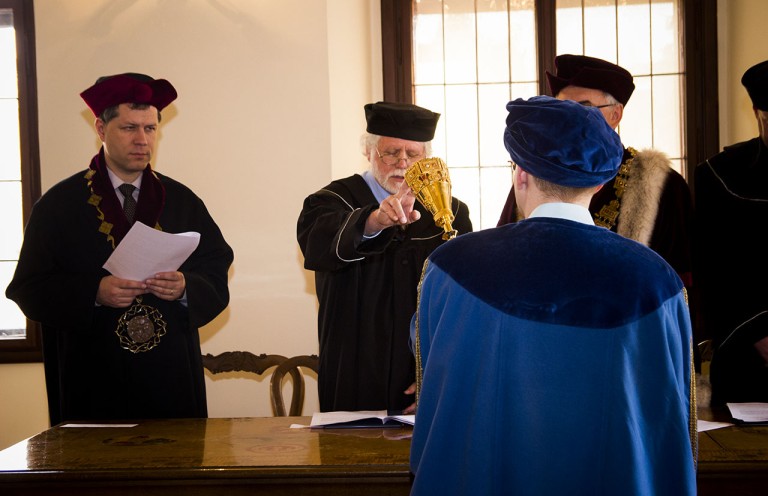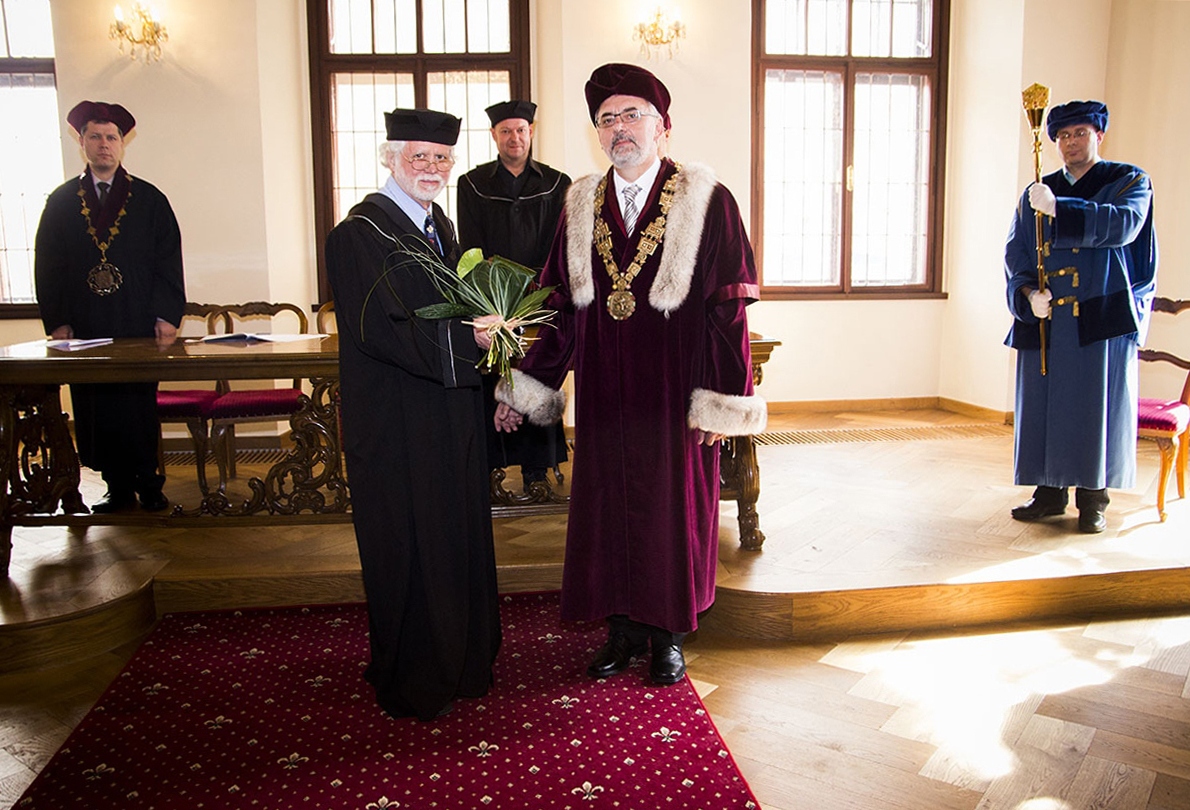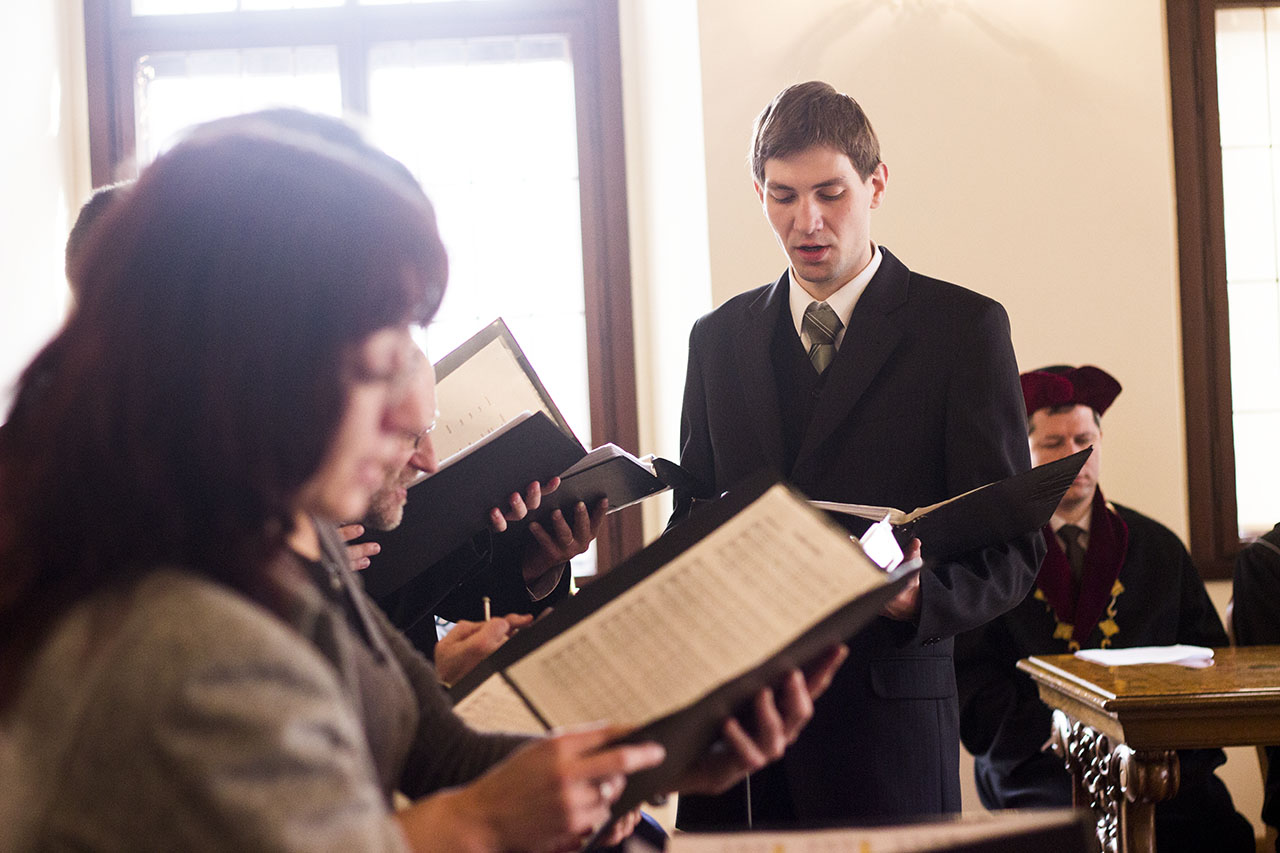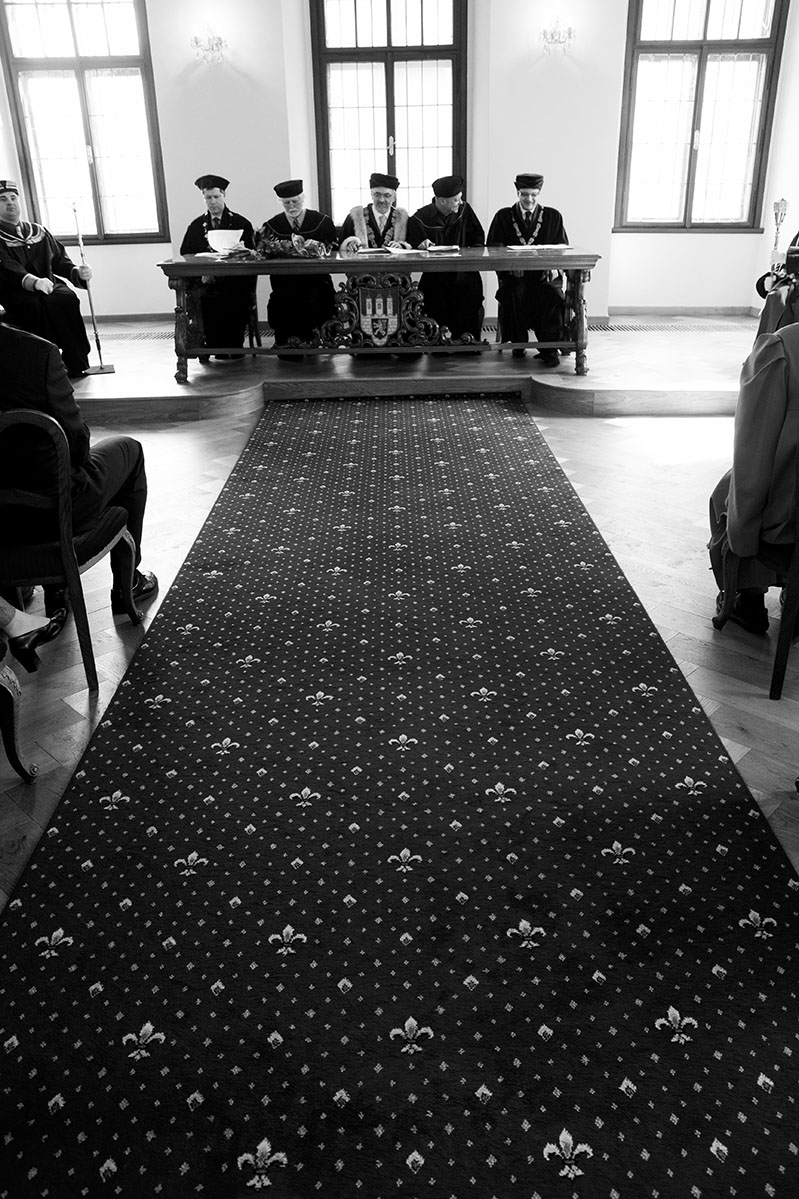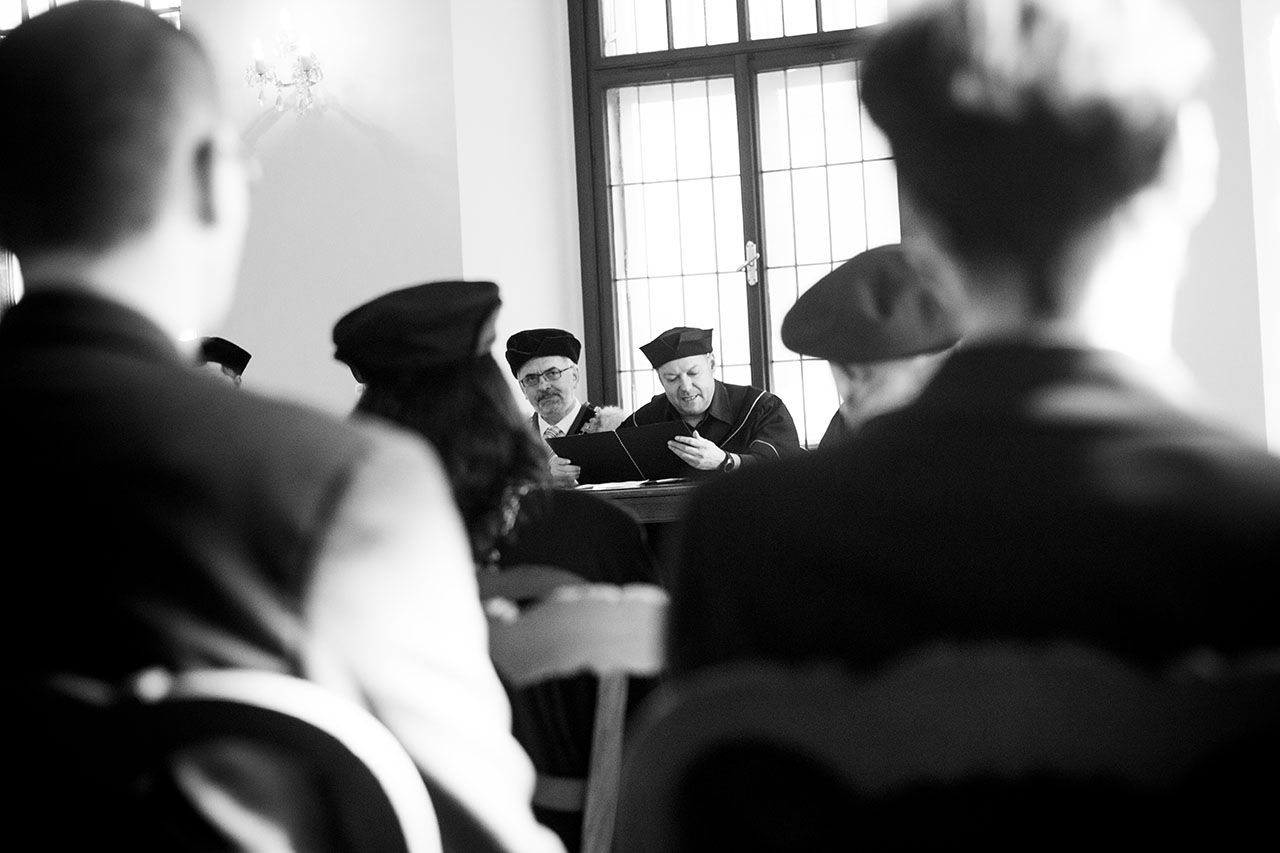Světově uznávaný neurobiolog prof. Steven M. Reppert převzal dne 19. 3. 2013 na slavnostním zasedání Vědecké rady Jihočeské univerzity čestnou vědeckou hodnost doctor honoris causa.
Prof. Reppert z Lékařské fakulty University of Massachusetts, Worcester, USA, se více než tři desítky let zabývá výzkumem cirkadiánních rytmů. Jeho oblíbeným objektem zájmu je motýl monarcha stěhovavý (Danaus plexippus).
Cirkadiánní rytmy jsou jedním z typů biologických rytmů s periodou o délce 20-28 hodin (lat. circa = přibližně, dies = den). Biorytmy jsou periodická kolísání aktivity a bdělosti. Cirkadiánní rytmy lze pozorovat u celé řady organismů - například některé rostliny na noc zavírají své květy, a to i v případě, že jsou umístěny v temné místnosti. Poruchy cirkadiánních rytmů u lidí významně ovlivňují zdravotní stav a kvalitu života.
O kvalitě výzkumu prof. Repperta i dlouholeté spolupráci mezi oběma vědci hovořil ve svém projevu prof. Ivo Šauman z Přírodovědecké fakulty a Entomologického ústavu AV ČR, v.v.i.:
To illustrate and summarize Steven’s scientific research merits I’d like to present few scientometric data of his achievements. I realize that numbers are usually boring, but believe me that these are not. Steven in his astonishing research career published more than 180 original scientific articles and reviews in the most prestigious scientific journals. His work was cited more than 21 000 times and his Hirsch-index reaches the astronomical value of 76. I believe you must admit that these numbers are definitively not boring; maybe they just sound like they are from a different planet.
At the end of my talk I would like to say I am greatly honored that almost 20 years ago I got an opportunity to participate and maybe even contribute little bit to some of the great achievements of Steven’s scientific research discoveries during my post-doctoral stay in his laboratory at Harvard University. And I am even more happy to mention that this opportunity resulted in a long lasting and very fruitful collaboration between our laboratories.
Prof. Reppert přiblížil svůj přístup k vědeckému bádání a hovořil i o objektu svého výzkumu - motýlech:
My fundamental philosophy is to do the best science possible, without worrying about an immediate implication of the results for human health and disease. Of course, translational research is important, but I strongly believe that the best science is derived from experiments aimed at just trying to understand how a fundamental process works, no matter what the system. (...)
I close by telling you how profoundly butterflies have influenced humankind, beyond the scientific knowledge of their inner workings. It has been said that butterflies are “a metaphor for life.” These delicate, graceful creatures capture our imagination and inspire all aspects of human endeavor—from science to sculptures, and from preservation to poetry. As the novelist and lepidopterist Vladimir Nabokov once mused, “My pleasures are the most intense known to man: writing and butterfly hunting.” Understand butterflies, and we understand ourselves.
Foto z udělení čestného doktorátu na českobudějovické radnici (foto T. Stiborek)
